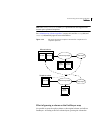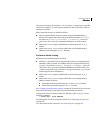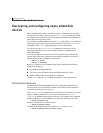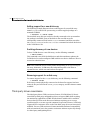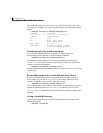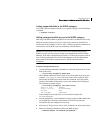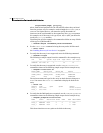
81Administering disks
Disk devices
auto When the vxconfigd daemon is started, VxVM obtains a list of
known disk device addresses from the operating system and
configures disk access records for them automatically.
Auto-configured disks (with disk access type auto) support the following disk
formats:
cdsdisk The disk is formatted as a Cross-platform Data Sharing (CDS)
disk that is suitable for moving between different operating
systems. This is the default format for disks that are not used
to boot the system.Typically, most disks on a system are
configured as this disk type. However, it is not a suitable
format for boot, root or swap disks, for mirrors or
hot-relocation spares of such disks, or for Extensible Firmware
Interface (EFI) disks.
hpdisk The disk is formatted as a simple disk. This format can be
applied to disks that are used to boot the system. The disk can
be converted to a CDS disk if it was not initialized for use as a
boot disk.
See the
vxcdsconvert(1M) manual page for information about the utility that
you can use to convert disks to the cdsdisk format.
Caution: The CDS disk format is incompatible with EFI disks. If a disk is
initialized by VxVM as a CDS disk, the CDS header occupies the portion of the
disk where the partition table would usually be located. If you subsequently use
a command such as fdisk to create a partition table on a CDS disk, this erases
the CDS information and could cause data corruption.
By default, auto-configured non-EFI disks are formatted as cdsdisk disks when
they are initialized for use with VxVM. You can change the default format by
using the
vxdiskadm(1M) command to update the /etc/default/vxdisk
defaults file as described in “Displaying and changing default disk layout
attributes” on page 97. See the
vxdisk(1M) manual page for details of the usage
of this file, and for more information about disk types and their configuration.
Auto-configured EFI disks are formatted as hpdisk disks by default.



